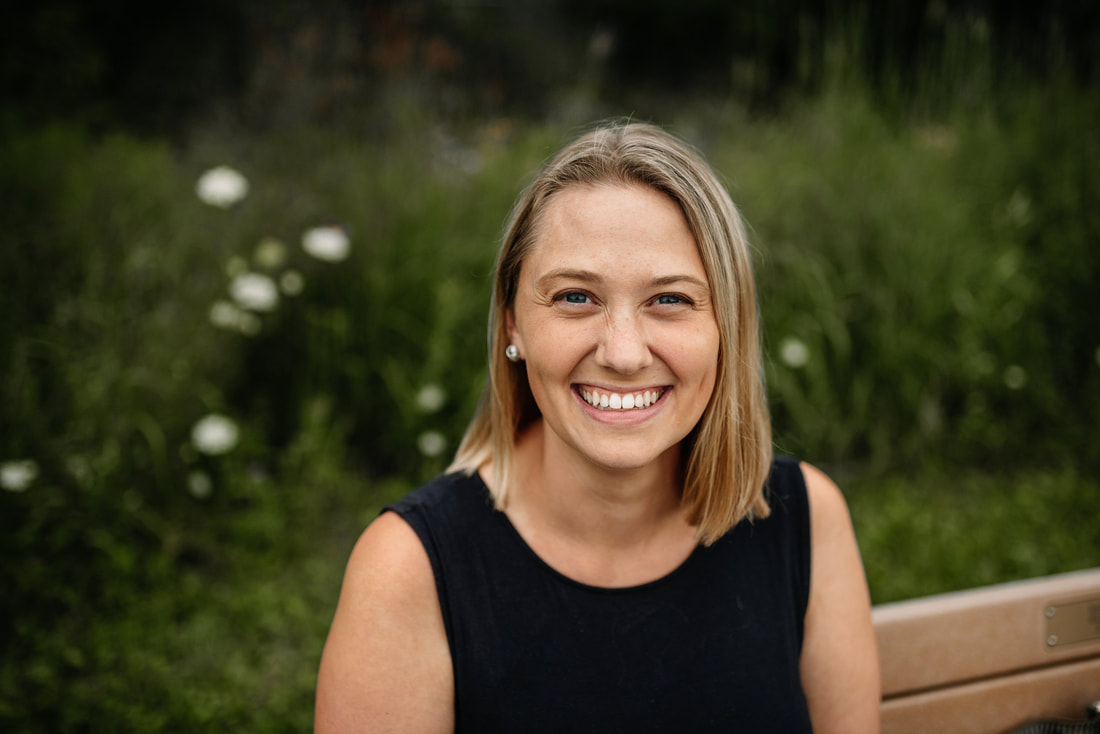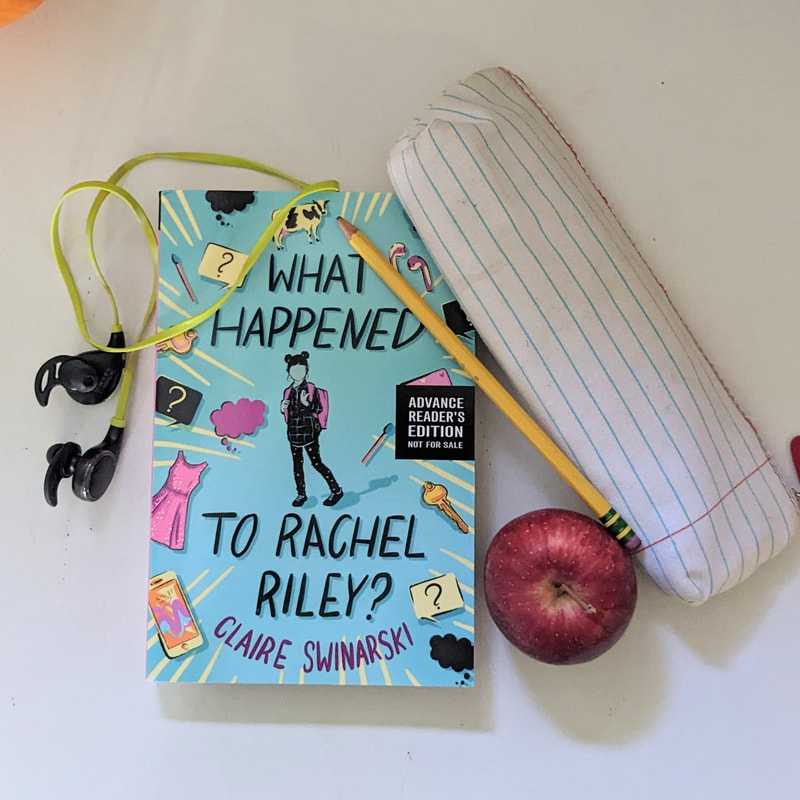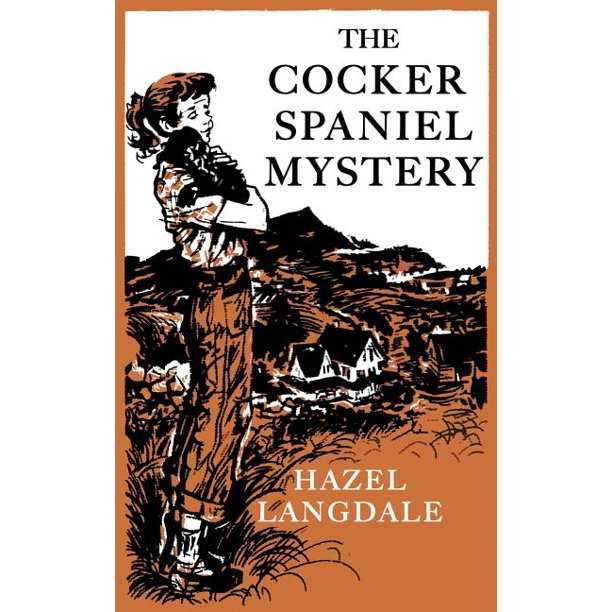|
Today I'm thrilled to welcome Claire Swinarski, author of the middle grade novel What Happened to Rachel Riley?, as well as other books for children and adults. Rachel Riley was one of my favorite middle grade reads of 2022, so I'm thrilled that she agreed to join us to answer a few questions about herself and her writing. Welcome, Claire! FEH: I have read and loved your adult non-fiction, and I see you have an adult novel coming out soon (congratulations!), but most of your books are middle grade. What draws you to middle grade books? What do you find most challenging about writing for this age group? CS: Thank you so much! I love middle grade books because of how much they meant to me as a kid. At the point in our lives where we're focusing on middle grade novels--ages 8-14ish--we're going through so many questions about who we are, what we believe, who we can trust, etc. So those books that can help you articulate and answer those questions just tend to stick with you your entire life. Ask someone which books have changed their lives and given them really profound reading experiences: often you get answers like Maniac Magee or Anne of Green Gables or Roll of Thunder Hear My Cry. All middle grade books. (FEH: Anne of Green Gables is my answer for sure; I definitely agree here.) CS: That being said, there are definitely challenges of writing middle grade. For me, the main thing is just keeping the voice realistic. Things like slang and technology practices are always shifting and changing. I didn't mention TikTok at all in my first middle grade; the one I'm currently working on mentions it constantly because that's what 12-year-olds are doing on their phones. You have to stay really up to date in order to sound realistic, if that's what your going for, and since my books are contemporary, realistic fiction, it's essential for me. It's also tricky to not come across as "preachy"--I can't stand preachy books, and it's so easy to fall into the idea that I have some kind of message I need to get across when really, I just want to focus on telling a good story. FH: One of my favorite parts of What Happened to Rachel Riley? was the family dynamic. You created such a loving and believable part-Polish family—and as a member of one myself, I found so much of it relatable! So, two questions springing from that: a) What is your favorite Polish food? CS:My favorite Polish food is definitely sauerkraut pierogi--SO good. and, b) Who is your favorite fictional family? CS: As for my favorite fictional family, I think I'd fit in pretty well with the Weasleys! (FEH: Cool--I've been told my family is basically the non-magical version of the Weasleys, except we have lots of girls and only one boy. So if you're ever in New England, you can come hang out with us and eat sauerkraut pierogi. ;) ) FEH: Your books seem to be unashamedly “issue books,” in that the characters deal with some heavy circumstances (eating disorders, bullying, harrasment). But unlike some heavy-handed issue books, yours always seemed to let the story and characters shine while the issues remained the circumstances that sometimes moved the plot forward. Was this hard to balance? I imagine that those difficult issues must be on your heart a great deal, so how did you keep them from taking over?
CS: Like I said earlier, it's so important to me to not have my books become one big PSA. Beverly Cleary, one of the all-time greats, once said something along the lines of authors shouldn't start a book with a message in mind. They should tell a story, and not be trying to teach anything since kids learn enough stuff in school. I love that. So I really try to focus on realistic worlds and find that that allows for messiness and surprises. I started writing about sexual harassment in Rachel Riley because when I remembered my middle school days, that's what I remembered--not because I wanted to lay out a roadmap for what kids should do. If they read the book and feel inspired and implement action in their own schools, great. But I'm not out here trying to tell kids what to do. FEH: Speaking of balance, you have quite a balancing task going with your writing and mothering. Any advice or words of encouragement for other mamas trying to be the best mothers and makers they can be? CS: The balance of writing and motherhood isn't really a balance at all, but more of a holy alchemy. My kids make my writing so much better. They force me to write quickly, and to learn not to let perfection be the enemy of the good, because I simply don't have 8 hours a day to perfect my word choices or sentence structure. My interactions with them also constantly lead to big, deep emotions--gratitude, frustration, joy, delight, anger. By tapping into these emotions on a regular basis, it becomes much easier to pull from them when it's time to write! (FEH: This is amazing! I love the term "Holy Alchemy" for this interplay. I'm always going to think of it that way now.) CS: If you feel like you can't make time in your schedule to write, try and get creative. Remember that literally nobody will notice if your baseboards haven't been cleaned or the socks have started living in the laundry hamper. It's so good for kids to see their moms embrace passions and create art. Jesus was the master storyteller, after all, and when we participate in the act of storytelling, it's another way of emulating Christ. FEH: Finally, the question I love asking everyone: What’s the best writing advice you’ve ever received? CS: The best writing advice I've ever received is from a book called Bird by Bird by Anne Lamott. I don't read many writing-craft books because I've found they get in my head and slow down my process, but I do always recommend Bird by Bird to people because it's that genius. Anne Lamott writes about--and I'm cleaning up the language a bit here--crappy first drafts. She reminds us that you can't edit nothing, but you can absolutely edit a terrible first draft. So let your first draft be awful! You're just trying to get the words down on the paper. You can always, always, always go back and clean them up. If someone read my first drafts, I'd be completely mortified. They are honestly so horrible. But with no crappy first draft, I'd never get to the writing that I'm most proud of, like the final product of What Happened to Rachel Riley. FEH: Thank you so much for joining me, Claire! Congratulations on all the success Rachel has had, and on all your new projects in the works!
9 Comments
Today's review is really special to me, as The Cocker Spaniel Mystery was written by my husband's great grandmother, Hazel Raybold Langdale (she used different variations of her name on her books, so sometimes she's just Hazel Langdale, as on this book, and sometimes even H. R. Langdale). Her books have recently been reprinted by a small press, so I was able to purchase two copies of this book--one to keep and one to share with one of you! Just leave a comment below, and I'll randomly choose a winner next Monday. (I can only ship within the U.S.) For extra entries, sign up for my newsletter and/or follow me on Instagram (@faithough42) and let me know in your comment!
The Cocker Spaniel Mystery is a good, old-fashioned mystery in the vein of Nancy Drew or Trixie Belden, with a small amount of suspense and nothing too scary--making it perfect for sensitive or precocious readers. Polly Freeman--known as Polly Trailer because she lives and travels with her writer mother and artist father in their trailer--is visiting a friend in Vermont whose family breeds prize-winning cocker spaniels. When several of the pups go missing, Polly and her friends form a club to discover the thief and hopefully bring the pups back home in time for the local dog show. The story was well paced and fun, and the club interactions were spot on ("kids forming clubs" stories should be a genre unto itself!). The fact that it was published in 1956 made it a perfect window into the past—and a lovely reminder that things aren't so different today. And unlike some older books, this one is even free of any concerning stereotypes, so you can hand it to your young reader with no worries. In fact, Polly's parents defied the stereotypes of the time by supporting each other in their creative work and taking a hand in Polly's education (she's sort of half homeschooled, which was fun to see!). I can't wait to share this with one of you, so don't forget to enter the giveaway in the comments! For more Marvelous Middle Grade Monday recommendations, check out Always in the Middle! |
About meHi! I'm Faith. I blog about books and creativity, family and faith. Welcome! Archives
November 2023
Categories
All
|



 RSS Feed
RSS Feed